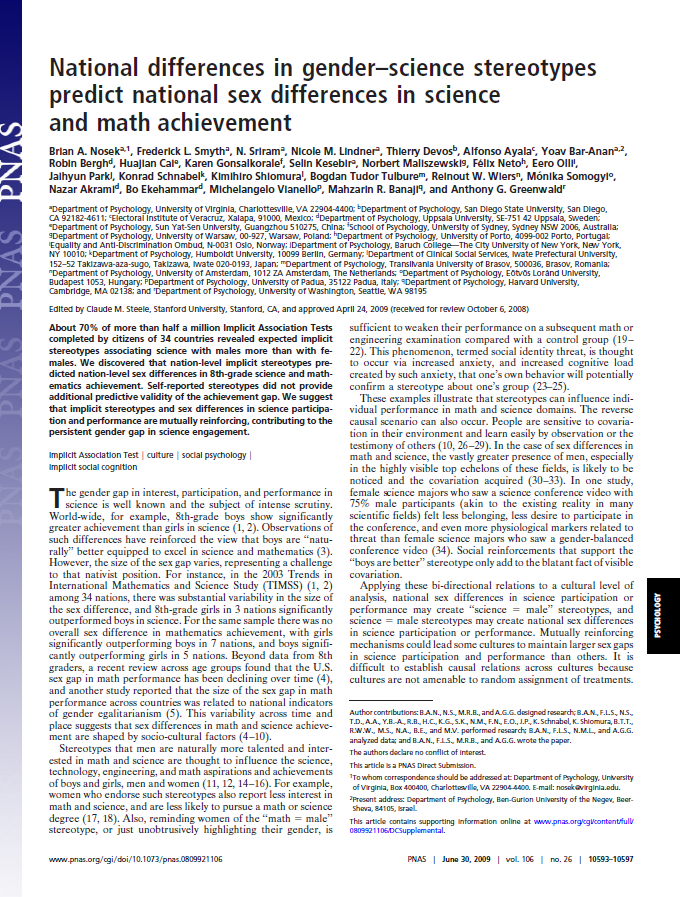National differences in gender–science stereotypes predict national sex differences in science and math achievement
Date
2009-06Author
Nosek, Brian A.
Smyth, Frederick L.
Sriram, N.
Lindner, Nicole M.
Devos, Thierry
Ayala, Alfonso
Bar-Anan, Yoav
Bergh, Robin
Cai, Huajian
Gonsalkorale, Karen
Kesebir, Selin
Maliszewski, Norbert
Neto, Félix
Olli, Eero
Park, Jaihyun
Schnabel, Konrad
Shiomura, Kimihiro
Tudor Tulbure, Bogdan
Wiers, Reinout W.
Somogyi, Mónika
Akrami, Nazar
Ekehammar, Bo
Vianello, Michelangelo
Banaji, Mahzarin R.
Greenwald, Anthony G.
Metadata
Show full item recordAbstract
About 70% of more than half a million Implicit Association Tests completed by citizens of 34 countries revealed expected implicit stereotypes associating science with males more than with females. We discovered that nation-level implicit stereotypes predicted nation-level sex differences in 8th-grade science and mathematics achievement. Self-reported stereotypes did not provide additional predictive validity of the achievement gap. We suggest that implicit stereotypes and sex differences in science participation and performance are mutually reinforcing, contributing to the persistent gender gap in science engagement.

